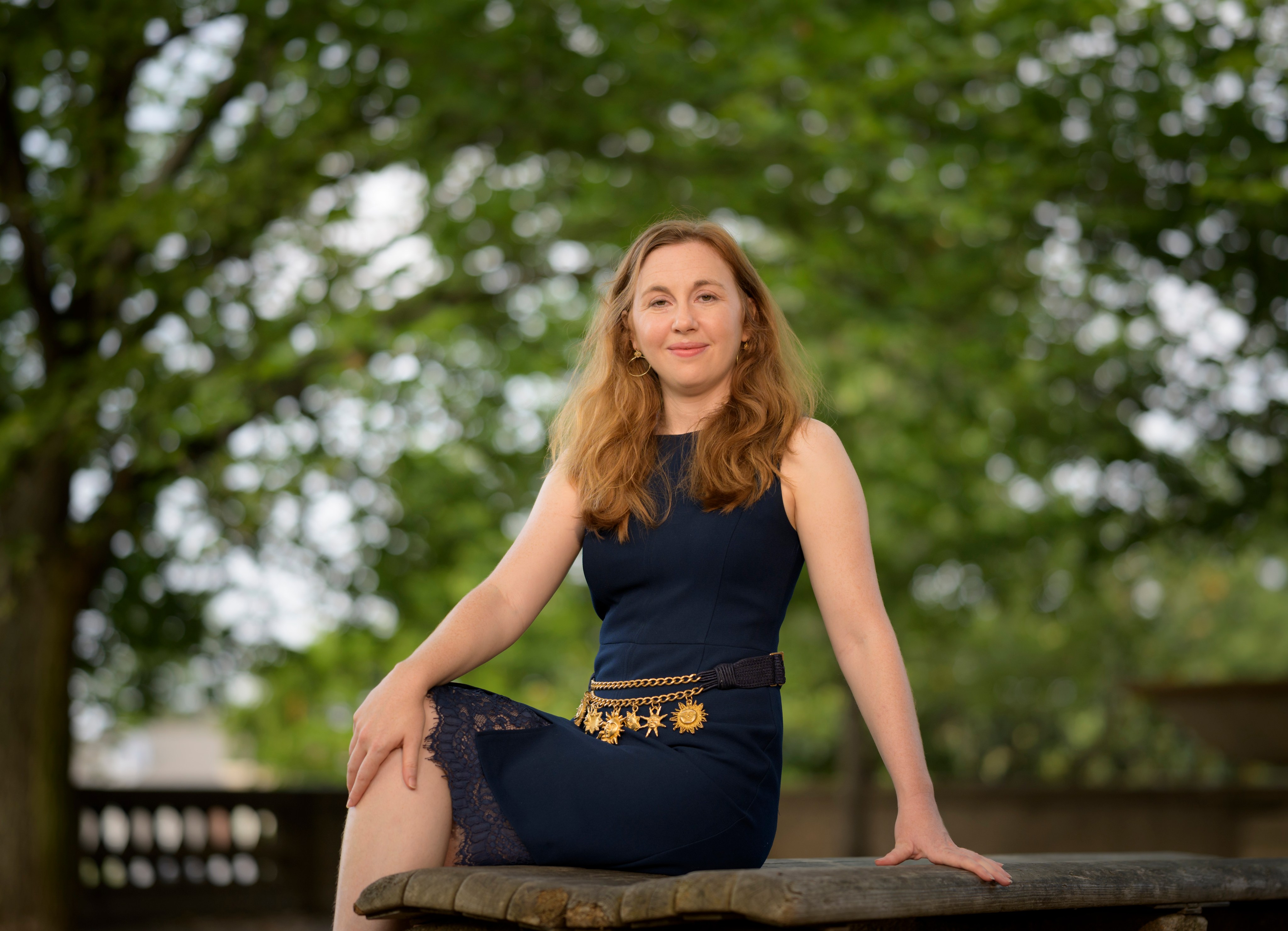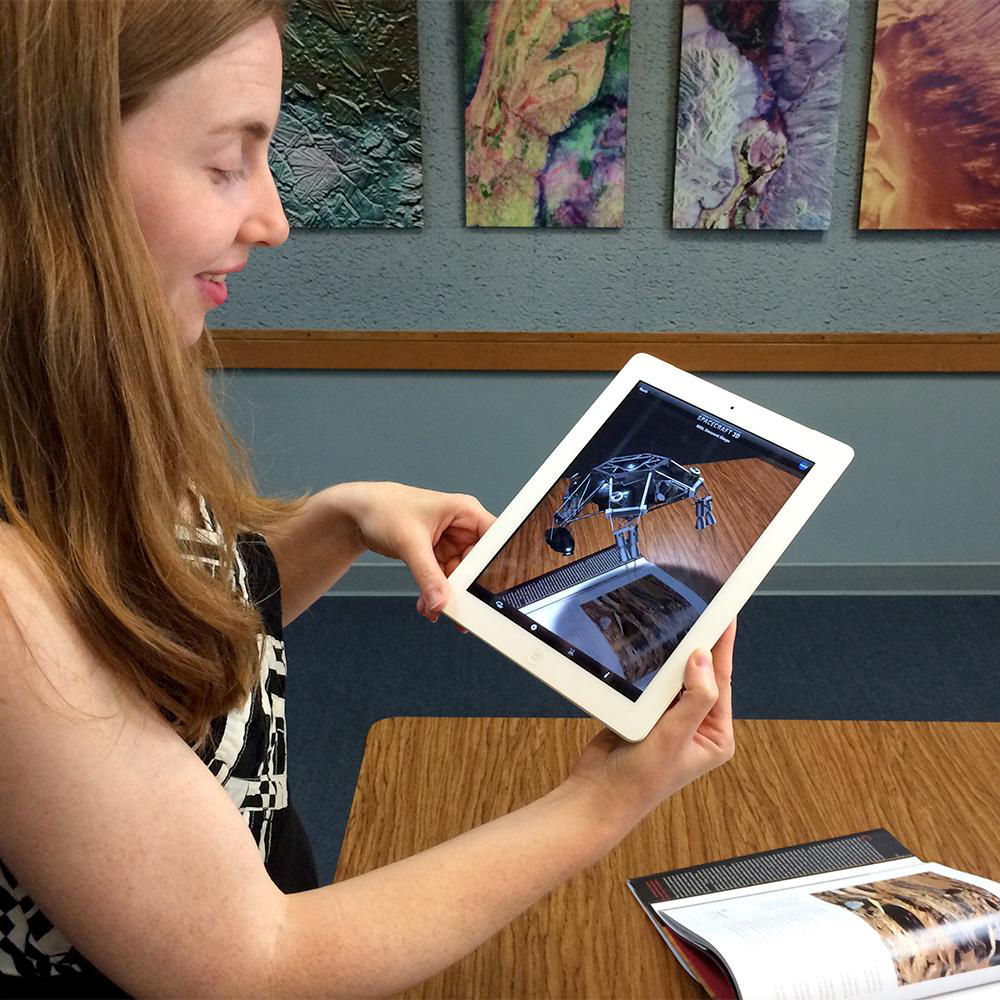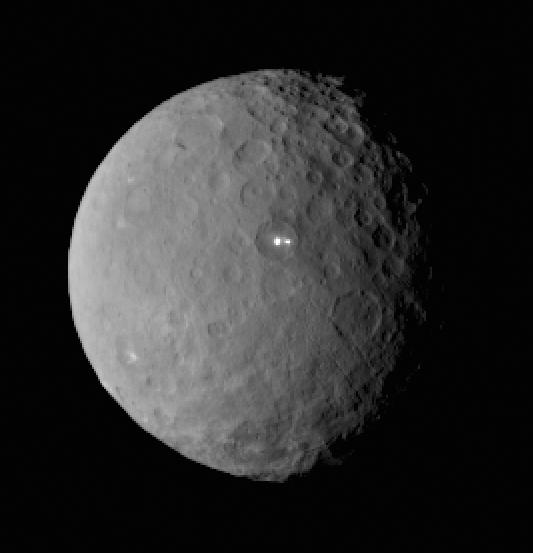
Elizabeth Landau
Senior Communications Specialist | NASA Headquarters
When Elizabeth Landau was growing up in Bryn Mawr, Pennsylvania, her parents encouraged her to go into law or medicine. But as a lover of science and writing, she forged her own path and ultimately landed at NASA's Jet Propulsion Laboratory, where she works today as a Senior Storyteller. Read on to learn more about her journey, including her early days as a CNN writer/producer, breaking NASA's TRAPPIST-1 news to the world, and how improv helped her overcome her decades-long struggle with shyness.
My parents say that when I was about 2 or 3 years old, I loved watching the original "Cosmos" series hosted by Carl Sagan. It must have really made an impression! I also loved going to the Franklin Institute Science Museum in Philadelphia, which had a giant model of a human heart that kids could climb through, and lots of other fun exhibits. Really, anything to do with science was interesting to me, even in childhood.
Even though I loved physics and math in high school, I majored in anthropology, with certificates in creative writing and Spanish, in college. During my junior year, I was the editor-in-chief of Innovation, the Princeton University student science magazine, but had no notion of actually working in the space program at that point.
When I worked as a writer/producer at CNN Digital, I often wrote about the exciting developments at NASA, such as Voyager 1 entering interstellar space and the Curiosity rover landing on Mars. But I never thought about working at the Jet Propulsion Laboratory until I happened to see a job posting for the media office.
I direct content packages for various NASA websites on everything from exoplanets to solar system topics. I run brainstorming meetings, attend conferences and look for the best ways to communicate the great work NASA does to the public.
In 2017, I led the communications group that worked on the announcement about TRAPPIST-1, a system of seven Earth-size planets orbiting an ultra-cool dwarf star. For several months prior to the TRAPPIST-1 announcement, I coordinated the many ways that various teams across NASA were going to communicate the results. I wanted to make sure that all of the text stories, videos and artwork were showing a consistent vision of the TRAPPIST-1 system, and that everyone involved had a clear understanding of what we do and do not know about these wondrous planets. It was really amazing for me to be involved in early conversations with the scientists about how these planets might look, just based on data plots.

I really liked writing short fiction when I was in high school. I founded and edited a literary magazine in high school called “Beyond” (fiction and poetry) and I wrote short fiction for that. In college, I wanted to do Princeton's creative writing certificate program, which is known for world-famous writers. Each of the courses required an application, and I was actually rejected several times. But in the fall of my junior year, I saw that David Ebershoff, whose book "Pasadena" (about the city in the 1800s) I had read, was teaching a course. I showed up to his first class and talked my way into staying on. David taught me a lot about developing distinct voices for characters and finding inspiration for stories. Because I pushed back against the initial rejection and developed stories I was proud of in that class, I was formally admitted to the thesis-writing program. My senior year, I got to fulfill my dream of studying with Joyce Carol Oates, who was my thesis advisor.
At that time, for my senior thesis, I wrote a novella based on my experience in Spain and my anthropology research about Spanish-Jewish history. Since then, I’ve tried to work on a new novel that sort of touches on that one. It’s my big personal project to finish and publish it one day.
My parents had great careers in other fields, but no one in my family is a professional writer. When I started going in that direction, my family members saw that choice as unconventional, and thought I would come around to the idea of law school (my dad is a lawyer). But I remember having lengthy conversations with friends of mine in college, the kind of conversations people go to college for—How can we build lives for ourselves that we find meaningful, beyond merely earning money? We wanted to have careers we were passionate about and genuinely interested in, as opposed to a means to an end. I’ve always been very determined to have a career that I believed in, that would allow me to learn something new every day. I want to be constantly learning and I feel really lucky to always been able to have jobs like that. Every day I am exposed to something new—people, ideas, or ways of doing things.
Throughout my life, I’ve gone from being an extremely shy introvert to more of an outgoing extrovert. It’s been a gradual uphill climb. I used to be super shy. When I was really young, I felt like I didn't know how to talk to other kids. I was amazed by how people fluidly spoke to each other without thinking too hard about it, without appearing to have any kind of embarrassment or reservation about what they were saying. I've definitely developed confidence over time—now I can very quickly and comfortably switch from talking about something like physics to personal matters, and be totally open to listening to others as well.
When I was about 27 and living in Atlanta, Georgia (during my time at CNN), I took classes in improvisational comedy at Relapse Theater. Improv helps you be in the moment with someone you’re talking to. One of the ground rules of improv is that no choice that you make on stage is "wrong." Whatever you say or do is inherently the "right" thing, because everyone else in the scene has to go along with it. I felt that this was super liberating and helped me better confront a whole spectrum of real-world interactions.

Since Dawn was the first mission I worked on in JPL's media office, I feel I should mention one of the spectacular views of Ceres that Dawn has delivered. In February 2015, before entering orbit at Ceres, Dawn captured this image (above) of Ceres that showed what appeared to be two bright "lights" in the center of a crater. We know now, having seen the crater up close, that there are a multitude of bright spots in that crater, and that they are made of salt, which reflects light rather than producing it. This was an image that really got me excited about working on the mission and sharing the amazing feats of Dawn.
One of the biggest challenges in science communication is characterizing uncertainty. The longer I spend at JPL, the better I understand that while our spacecraft show us wondrous things, no one study or set of data will have all the answers we want. Scientists use that data to formulate theories about the planets and the broader universe that are plausible, but not 100 percent proven. They are the best theories we have, but they are still theories. There is a very delicate balance here, because I want to share the excitement of exploration, but I also don't want to overstate the conclusions that one can draw from the results. This is something I have thought about a lot in I working on news announcements.
When I was in school, social media did not exist. Podcasts did not exist. Many of the other multimedia platforms commonly used to tell stories today did not exist. I didn't learn about any of these things in journalism graduate school, but I had to quickly adapt in professional settings to the changing landscape. So I would say that you should follow your passions and dreams, but also be open to learning new technologies and ways of thinking, as they may help you advance your goals.
Explore the latest TRAPPIST news, download futuristic travel posters and dive into thousands of other alien worlds on NASA's exoplanet portal.
Planetary science is a global profession.


